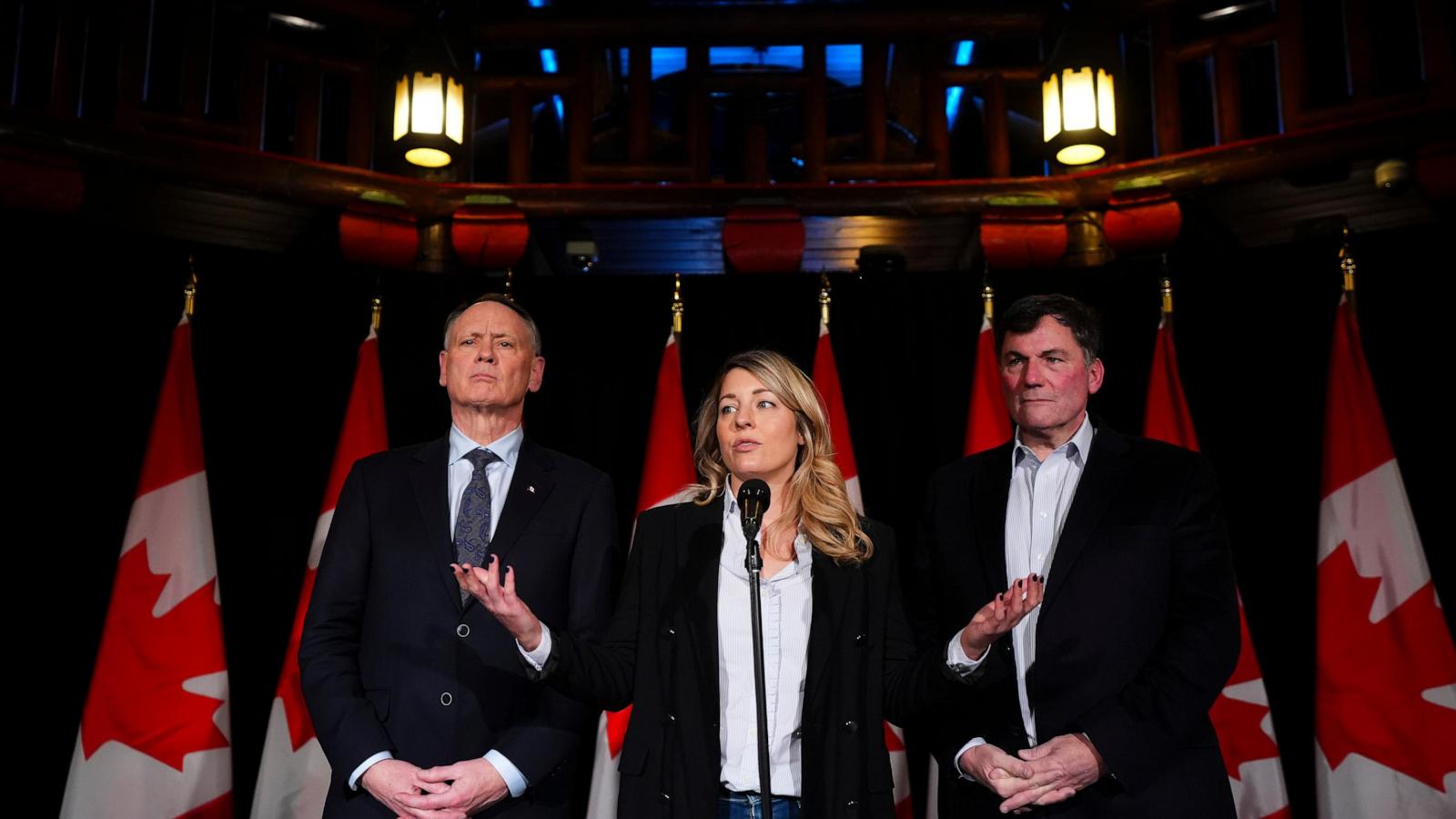Trump's Tariffs on Canada: A Looming Threat or a False Alarm?
The inauguration of Donald Trump sent shockwaves through the global community, particularly among America's closest trading partners. Trump's campaign rhetoric, heavy on protectionist trade policies, had many fearing the immediate imposition of sweeping tariffs. While the initial day brought a sigh of relief with no immediate tariff announcements, the underlying threat remains palpable. This article delves into the intricacies of this evolving situation, exploring the potential ramifications of tariffs on Canada and the complex US-Canada trade relationship.
The Day the Tariffs Didn't Come (Yet)
The first day of the Trump presidency passed without the expected tariff bombshell. While Trump's inaugural address promised tariffs and a new external revenue service to collect them, no immediate actions were taken against Canada, Mexico, or other trading partners. This caused relief among Canadian leaders. Finance Minister Dominic LeBlanc expressed cautious optimism, hoping for a closer look at the US-Canada trade relationship. However, the delay shouldn't be mistaken for an all-clear signal. A "reprieve," LeBlanc stated, is too strong a word, emphasizing that the threat of tariffs is still very real and looming.
Reactions from Canadian Officials
Various Canadian officials expressed a blend of cautious optimism and wary anticipation. Premier Danielle Smith of Alberta highlighted that the issue is complex and avoiding tariffs would save countless American and Canadian jobs. Ambassador Kristen Hillman underscored that "nobody is giving us any assurances," underlining that while the news is positive, Canada's vigilance must remain steadfast. The "wait and see" approach underscores a shared recognition of the potentially dire economic consequences if this sensitive trade partnership is significantly disrupted.
The Economic Intertwining of the US and Canada
The US-Canada trade relationship is unparalleled in scale and complexity. With 75% of Canadian exports heading to the United States, the impact of tariffs would be catastrophic, affecting jobs and livelihoods across multiple sectors. This isn't just about large corporations; many small- and medium-sized businesses depend heavily on this trade. The daily flow of $3.6 billion in goods and services illustrates the inextricable economic interdependence between the two nations. If this trade is seriously threatened by an increase in tariffs, economic impact would certainly be great on both nations. The trade amounts for these two nations are staggering; disrupting such trade relations would affect many jobs and economic standing.
Deepening Interdependence and Economic Realities
The symbiotic nature of this trade relationship cannot be overstated. Canada is the number-one export destination for a substantial number of US states. This bilateral flow creates employment and prosperity across multiple industries and communities. Considering the economic relationship between Canada and the U.S., and any significant change to the trade relationship between these two nations, there would be immediate, profound economic implications. The reliance on each other is critical. To avoid severe negative economic implications on either of these two countries, an effective and well-thought-out trade policy is essential.
Trump's Promise: A Trade War on the Horizon?
Despite the initial lack of direct action against Canada, the very real threat remains, primarily due to the very public rhetoric and promise of such trade tariffs by the current President of the United States, President Donald Trump. His vow to use tariffs as a lever to gain trade concessions remains potent. While he previously characterized Canada as unnecessary, his continued stance towards utilizing tariffs as a trading tactic creates uncertainties and risks. His stated goal of generating significant amounts of revenue from foreign sources underscores a policy that emphasizes trade negotiations as an income-generation measure.
Navigating Uncertain Times
The future of US-Canada trade remains unpredictable. While there was brief relief from immediate tariff imposition on the first day, the fundamental threat still exists. Canadian officials remain "very cautious," prioritizing diplomatic strategies aimed at mitigating the risks and achieving a mutually beneficial outcome. Continued efforts at clear communication, emphasizing shared benefits and seeking mutually agreeable compromises are going to be necessary to alleviate these tensions.
Take Away Points
- Despite no initial tariffs, the threat to Canada's economy remains substantial. The symbiotic nature of trade with the United States needs to be reinforced, constantly and repeatedly.
- Canadian officials' response indicates watchful vigilance, rather than relief. The constant awareness of and preparation for potentially catastrophic implications is essential for ongoing preparedness.
- The unpredictable nature of the US's stance on this topic highlights the need for adaptable and proactive policies from Canadian officials, as they must be ready for whatever decision is made by the U.S.
- A healthy and mutually beneficial trade relationship is an utmost necessity for both countries.




